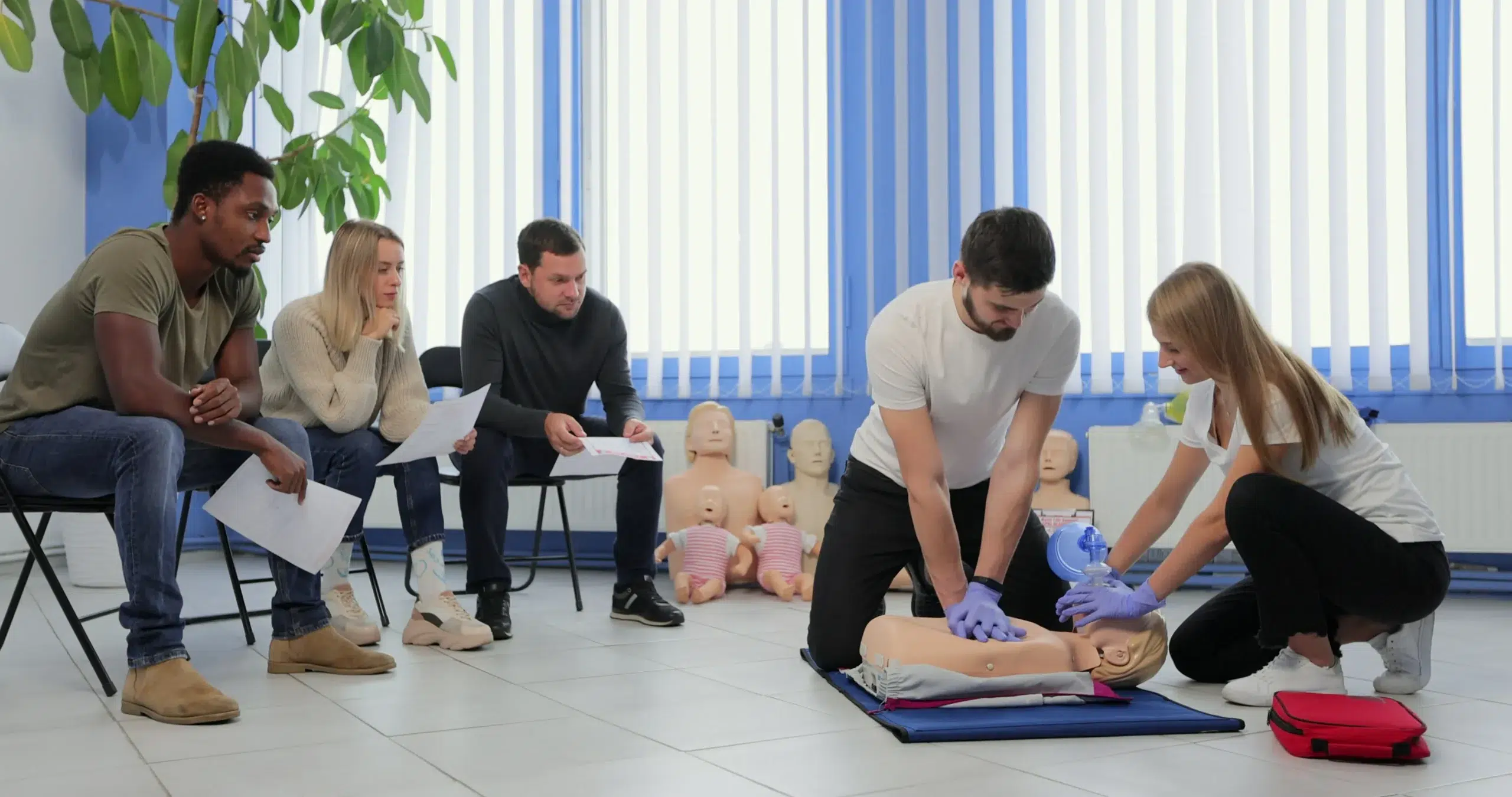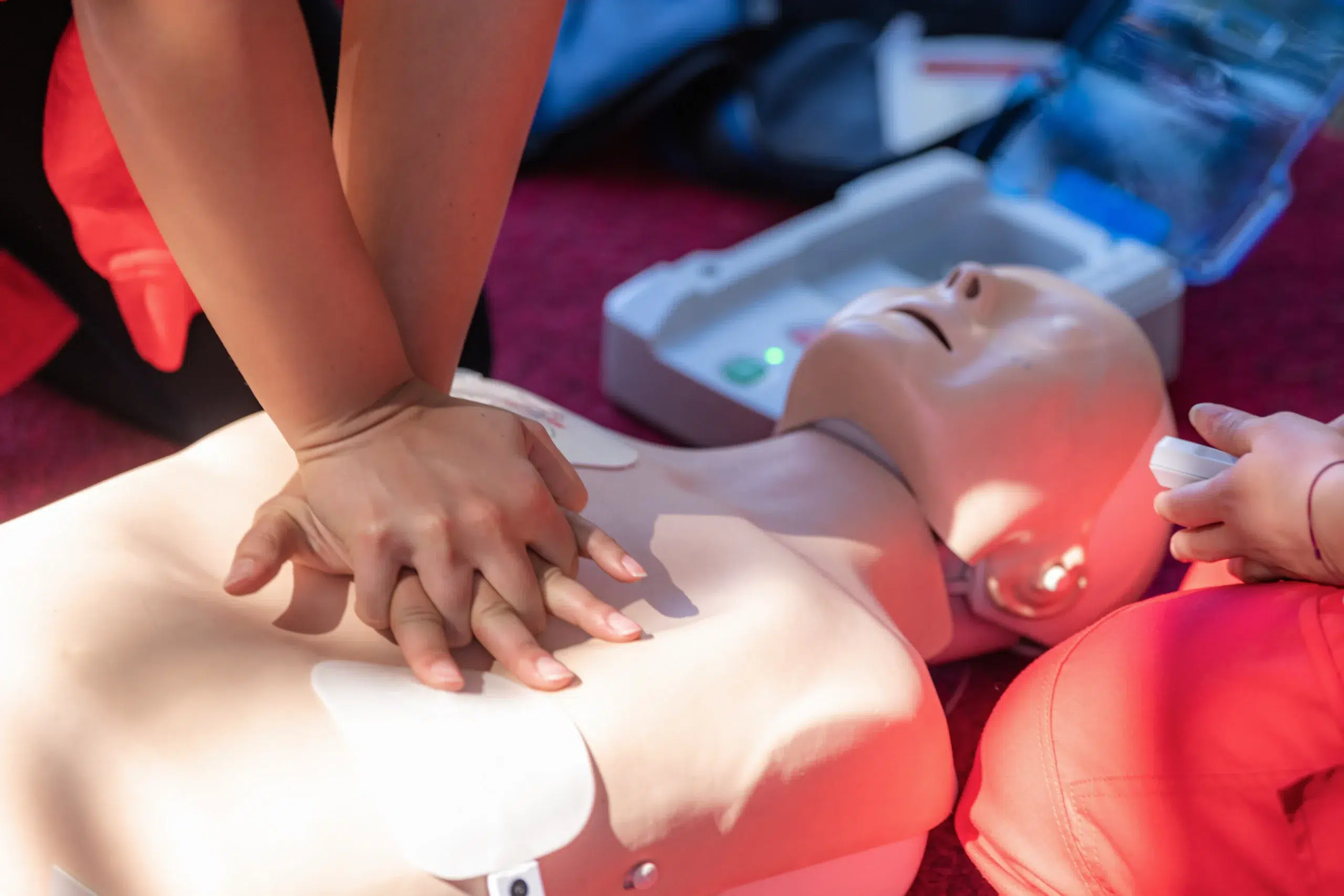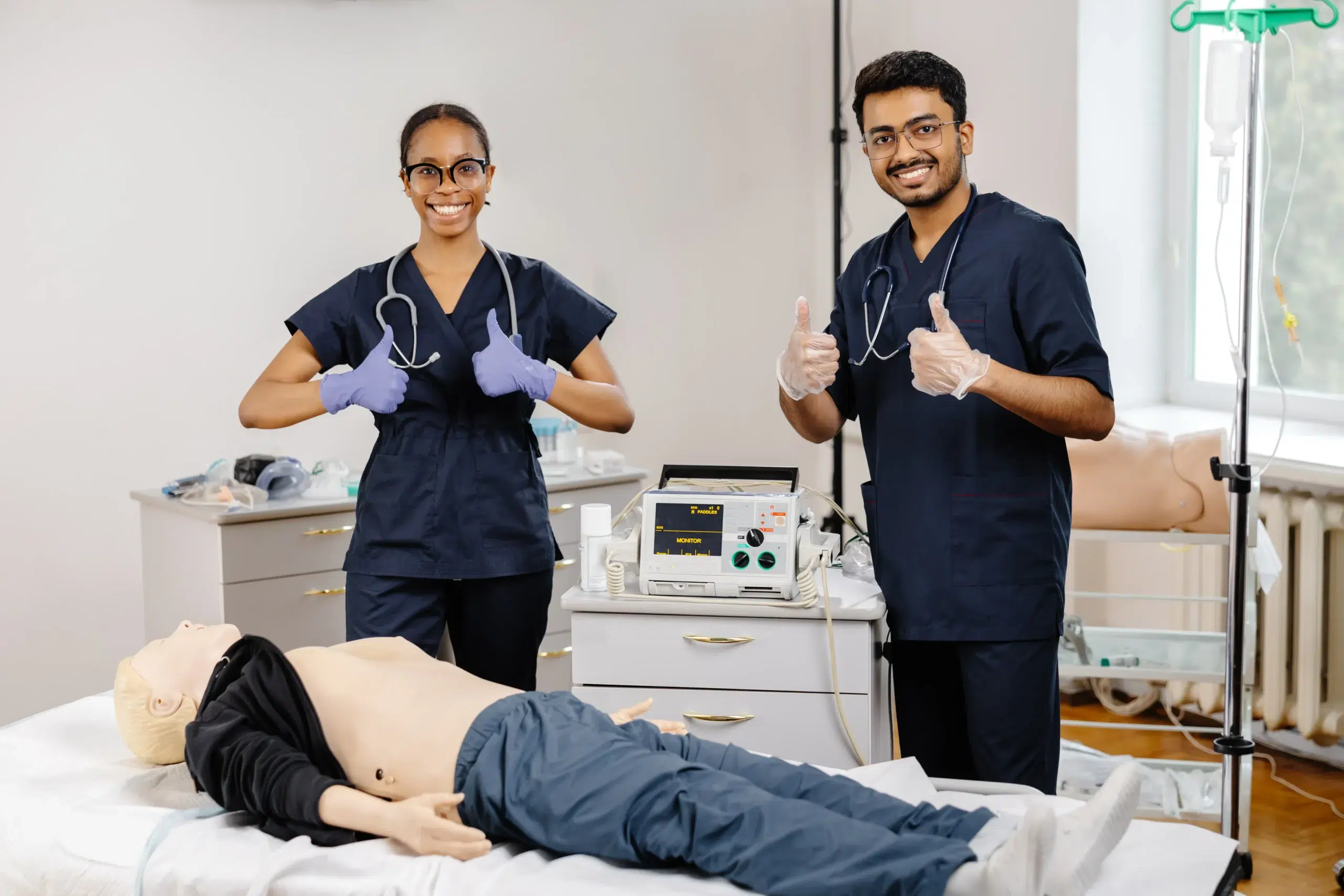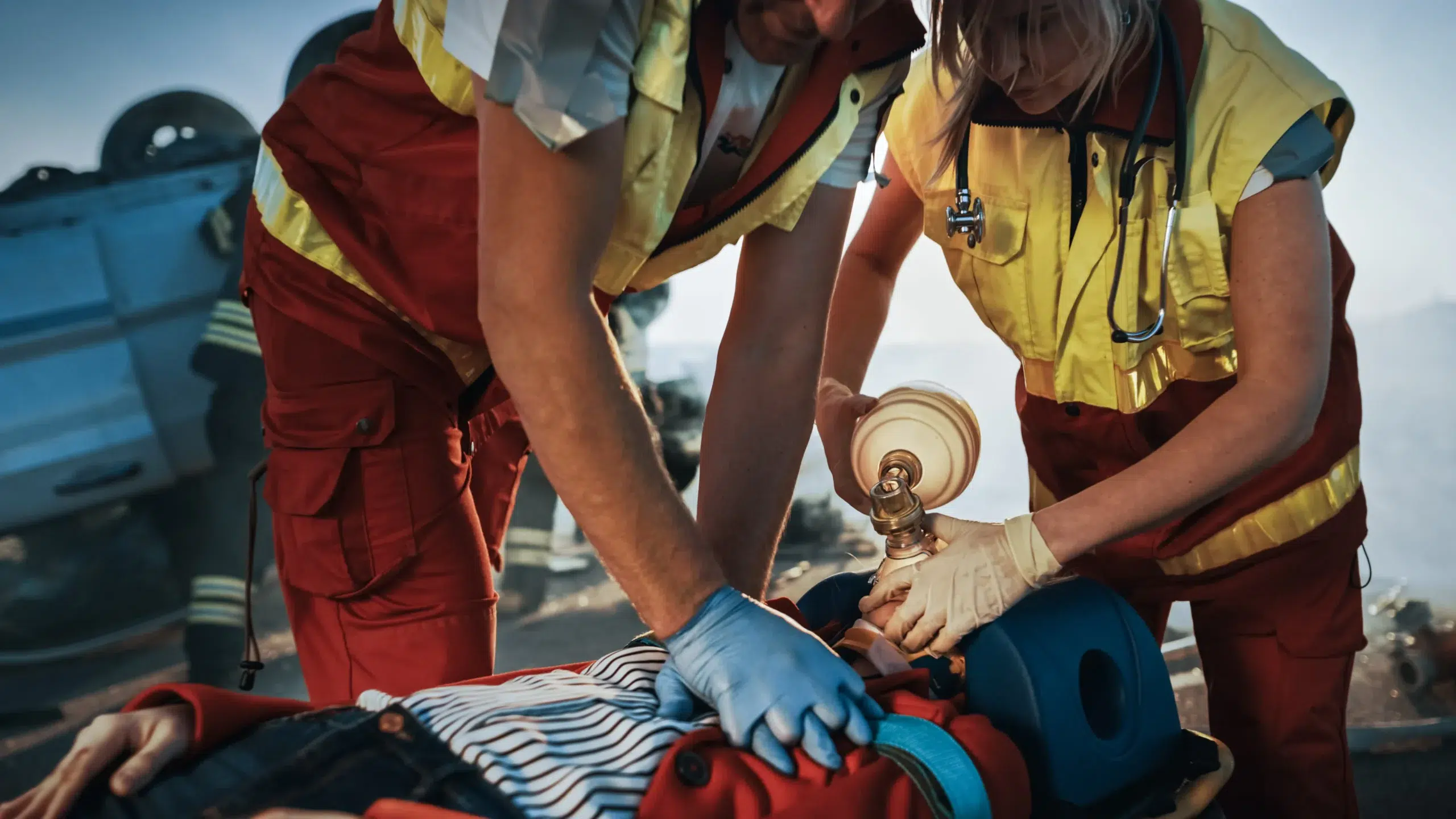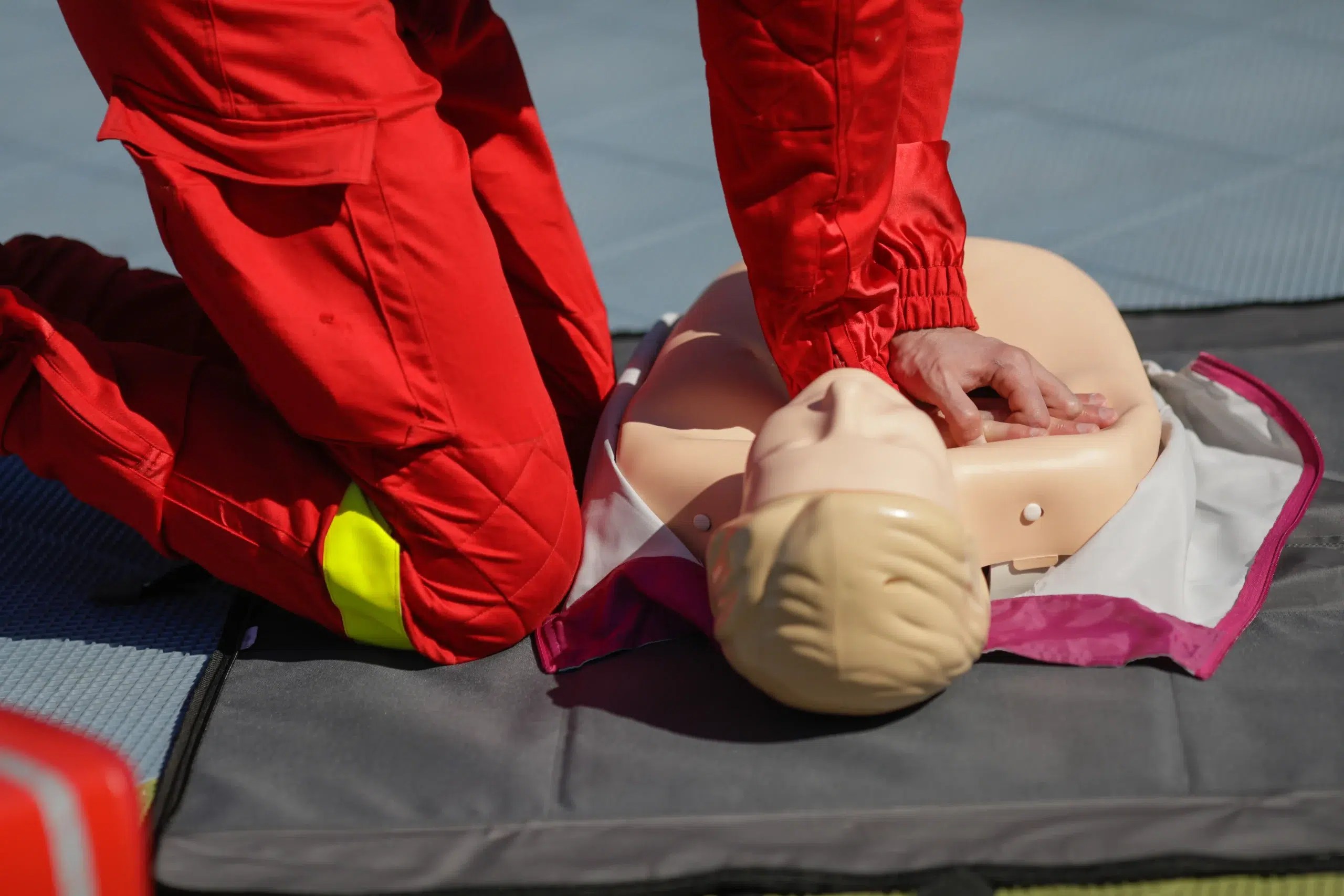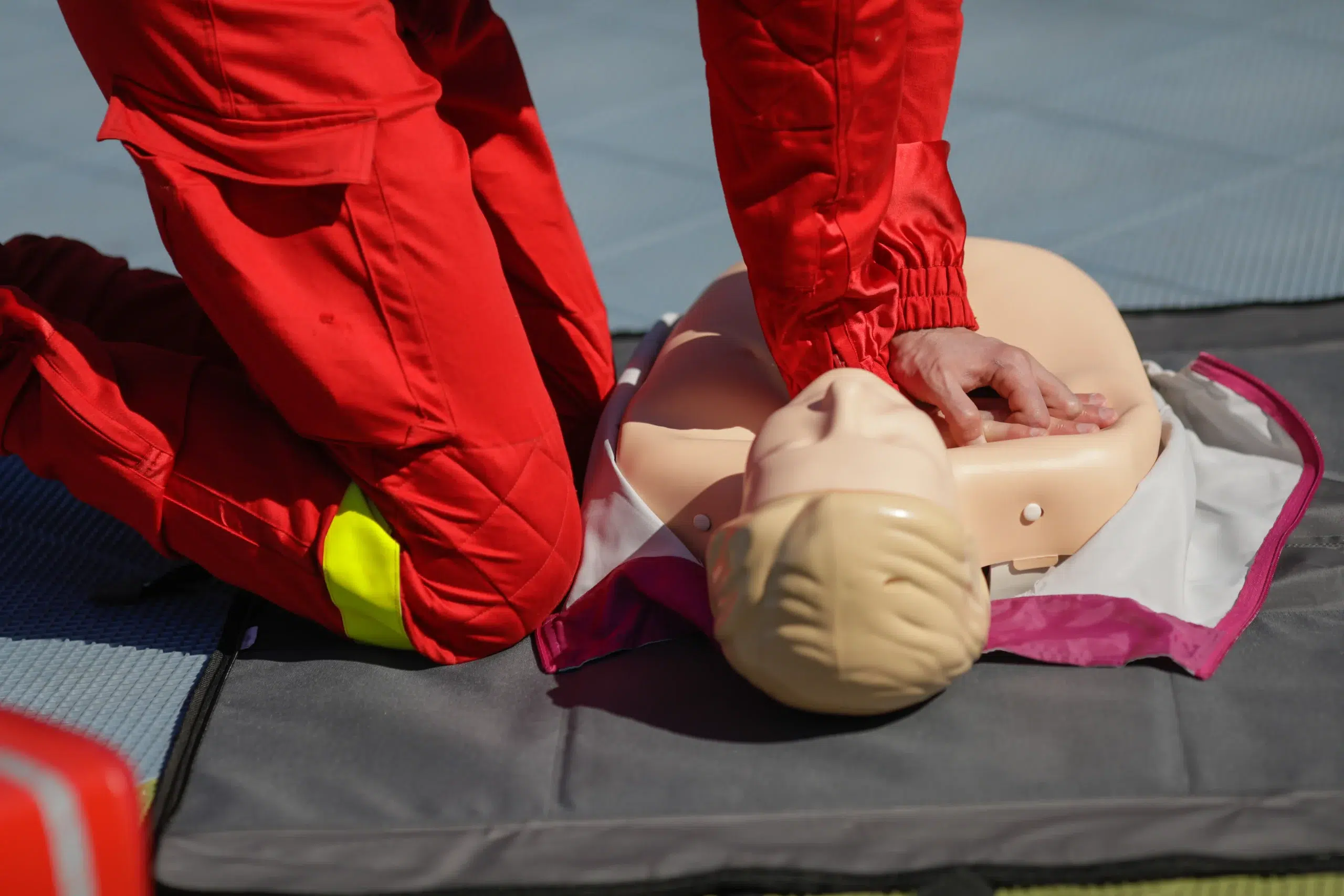Your BLS certification is more than a piece of paper—it’s a testament to your commitment to providing high-quality care. As your renewal date approaches, finding the right course is essential. If your Google search history includes “AHA BLS Renewal near me,” this guide is your one-stop resource. We’ll cover everything from eligibility requirements and course formats to cost considerations and tips for choosing the right provider. We’ll also address common misconceptions about BLS renewal and offer practical advice to help you prepare for your course.
Key Takeaways
- BLS certification empowers you to save lives: Whether you’re a healthcare professional or not, BLS equips you with essential skills to handle emergencies like cardiac arrest and choking. Regular renewal keeps your skills sharp.
- Finding a BLS renewal course that fits your needs is simple: Explore options like Safety Training Seminars, hospitals, and community colleges. Consider factors like class size, location, and instructor experience.
- Preparing for your renewal is straightforward: Review the BLS Provider Handbook, bring your current BLS card and ID to your session, and schedule your course early. Staying current with your certification demonstrates your commitment to providing effective care.
What is AHA BLS Certification?
What is AHA BLS Certification?
AHA BLS Certification confirms your skills in providing Basic Life Support. It means you’re prepared to respond to life-threatening emergencies, including cardiac arrest and choking. Whether you’re a healthcare provider or someone wanting to learn lifesaving skills, BLS certification equips you with techniques like CPR, giving you the confidence to act quickly and effectively. The AHA BLS Provider course and the BLS Renewal course both lead to the same certification.
Why Renew Your BLS Certification?
BLS skills and knowledge need regular refreshing. Renewing your BLS certification isn’t just about maintaining a credential—it’s about ensuring you can deliver the best possible care when it matters most. Recertification reinforces best practices for chest compressions, rescue breaths, and recognizing when someone needs BLS. It also keeps you updated on the latest science and techniques, ultimately maximizing the chances of positive outcomes. You can typically renew your certification within 30 days after it expires, sometimes even up to 60 days, depending on the provider. Staying current with your BLS certification demonstrates your commitment to providing effective, life-saving care.
Find AHA BLS Renewal Courses Near You
Finding the right BLS renewal course shouldn’t be a hassle. Whether you’re in San Jose or a surrounding area, several options are available to fit your schedule and learning style. Let’s explore some of the best places to find your next course.
Safety Training Seminars in San Jose
Safety Training Seminars, a woman-owned AHA Training Center in San Jose, offers high-quality BLS renewal courses alongside other certifications like ACLS, PALS, CPR, and First Aid. They focus on providing convenient daily classes and excellent customer service. Serving San Jose, Santa Clara, and Sunnyvale, their central location makes accessing these essential courses easy. Check their course schedule and register online. They also offer a low price guarantee, ensuring you get the best value for your training.
Other Local Providers
If you’re looking for more options, consider these other providers for BLS renewal courses:
American Heart Association Training Centers
The American Heart Association (AHA) offers various ways to renew your BLS certification. You can find local training centers and BLS courses on their website, with options for both online and in-person classes. This allows you to choose the learning environment that best suits your needs.
Hospitals and Medical Centers
Many hospitals and medical centers offer BLS renewal courses for their staff and often open these courses to the public. Check with hospitals in your area, such as Stanford Health Care or Kaiser Permanente, to see if they have any upcoming classes.
Community Colleges
Local community colleges frequently offer affordable BLS certification and renewal courses. These courses are a great option for those seeking convenient and cost-effective training. Check with your local community college for course availability and registration information.
Fire Departments
Fire departments often conduct BLS training and renewal for their personnel and sometimes extend these courses to the community. Contact your local fire department to inquire about potential BLS renewal opportunities.
AHA BLS Renewal Process Explained
This section clarifies the steps involved in renewing your American Heart Association Basic Life Support (BLS) certification. We’ll cover eligibility, course formats, and the renewal process itself.
Eligibility and Prerequisites
You are eligible to renew your BLS certification if your current certification is still active or within 30 days of expiring. Some providers, like Safety Training Seminars, may offer renewal courses up to 60 days after expiration. Check with your chosen provider for their specific guidelines. The only prerequisite for BLS renewal is a current or recently expired BLS Provider card.
Online vs. In-Person Course Formats
Choosing between online and in-person BLS renewal depends on your learning style and schedule. In-person training offers real-time interaction with instructors and hands-on practice. Online courses provide flexibility and convenience, allowing you to learn at your own pace. Many providers offer blended learning, combining online coursework with an in-person skills test—giving you the advantages of both formats.
Renew Your Certification: Steps
The BLS renewal process is straightforward. First, locate an AHA-authorized training center like Safety Training Seminars. You can find a training center on the American Heart Association website. Next, register for a BLS renewal course. These courses typically take around three hours, including skills practice and testing. During the course, you’ll review essential BLS skills, including high-quality CPR, using an AED, and relief of choking. After successfully completing the course and skills test, you’ll receive your updated BLS Provider card, valid for two years. Recertification ensures you stay up-to-date with the latest resuscitation guidelines and best practices, ultimately improving patient outcomes.
Cost and Value of AHA BLS Renewal Courses
When considering BLS renewal, it’s helpful to understand the costs involved and the value you receive. This section breaks down the typical price range, potential discounts, and the long-term benefits of staying current with your BLS certification.
Average Price Range
BLS renewal course fees vary based on location, course format (online or in-person), and the training provider. In San Jose, California, you can expect to find BLS renewal courses ranging from $75 to $120. For example, providers like Berkeley CPR Classes offer BLS courses for around $120, which includes online coursework, the skills test, and your certification card. Remember that prices can change, so it’s always a good idea to check with the provider directly for the most up-to-date pricing. Safety Training Seminars in San Jose offers various AHA courses at competitive rates.
Potential Discounts and Promotions
Many training providers offer discounts and promotions, so keep an eye out for those opportunities to save on your renewal. Some providers offer discounts for group registrations, early bird sign-ups, or even combined course registrations. You might also find special promotions throughout the year. Safety Training Seminars offers a low-price guarantee. Some providers offer renewal courses up to 60 days after expiration, providing a grace period if you happen to miss your renewal date. Consider an online BLS renewal course designed for healthcare providers with prior CPR training.
Long-Term Benefits of Renewal
While there’s a cost associated with BLS renewal, the value you gain outweighs the expense. Recertification in Basic Life Support offers immense benefits, such as improved resuscitation practices and techniques. You’ll gain proficiency in performing high-quality chest compressions and rescue breaths, and you’ll stay updated on the latest techniques for determining if someone needs immediate BLS. Ultimately, renewing your BLS certification increases the chances of saving lives. These skills are invaluable, not only in professional healthcare settings but also in everyday life.
Choose the Right AHA BLS Renewal Provider
Picking the right provider for your BLS renewal makes a big difference in your learning experience. Here’s what to consider:
Instructor Qualifications
Look for courses led by certified AHA BLS Instructors. These instructors complete specialized training programs, like those offered by EMR Safety and Health, to ensure they meet the AHA’s standards. Experienced instructors provide deeper insights and can answer your questions thoroughly.
Class Size and Personalized Instruction
A smaller class size often means more personalized instruction. This gives you more chances to interact with the instructor and get hands-on practice and feedback. Some providers, like Safeguard CPR, emphasize hands-on practice in small groups combined with online learning.
Convenience and Location
Think about class schedules, location, and your renewal deadline. You can usually renew your BLS certification up to 30 days after it expires, and some providers offer renewal courses up to 60 days after. Choose a provider with courses that fit your schedule and are easy to get to. Safety Training Seminars offers daily courses in San Jose, which makes scheduling simpler. Check our course calendar for upcoming classes.
Customer Reviews and Reputation
Reading reviews from other students can offer helpful insights into a provider’s strengths and weaknesses. Look for providers with a strong reputation for quality instruction and great customer service. Safety Training Seminars is committed to meeting student needs and providing excellent training. We also have a low price guarantee, so you’re getting the best value.
What to Expect During Your AHA BLS Renewal Course
So, you’re ready to renew your BLS certification—smart move! This section walks you through a typical BLS renewal course, so you’ll know exactly what to expect. We’ll cover the course duration, key topics, the skills assessment, and how you’ll receive your updated certification.
Course Duration and Key Topics
BLS renewal courses refresh your essential lifesaving skills efficiently. Expect the course to take approximately three hours. This includes a review of key BLS concepts, hands-on skills practice, and a final assessment. You’ll cover core topics such as high-quality CPR for adults, children, and infants, the AHA Chain of Survival, effective ventilation techniques, and how to relieve choking. For additional details, review the American Heart Association’s BLS course options.
Skills Assessment and Hands-On Practice
A significant portion of your BLS renewal course involves hands-on practice and skills assessment. You’ll work with training manikins to practice chest compressions, rescue breaths, and other essential techniques. Instructors provide real-time feedback, ensuring you’re confident performing these skills. This blend of hands-on training and focused review makes in-person renewal courses effective for maintaining your skills.
Certification Issuance
Once you’ve completed the skills check and written assessment, you’ll receive your updated AHA BLS eCard the same day. This digital certification is immediately accessible and verifiable. Many providers, like CPR1 Carolinas, offer same-day certification. Having your updated eCard right after the course eliminates any waiting period, ensuring you’re always prepared.
Online vs. In-Person AHA BLS Renewal
Deciding between online and in-person AHA BLS renewal depends on your learning style and schedule. Both formats cover the same material and meet the same AHA standards, but the experience differs. Let’s break down the key differences to help you choose the best fit.
Flexibility and Convenience
Online renewal offers unparalleled flexibility. You can learn at your own pace, fitting in modules whenever you have time. This format works well for busy professionals or those with unpredictable schedules. In-person classes require a set time commitment, but offer a structured learning environment. Safety Training Seminars in San Jose, for example, provides daily courses, making it easier to find a time that works for you.
Hands-On Practice Opportunities
AHA BLS renewal emphasizes hands-on skills. Both online and in-person courses include skills practice and testing. In-person classes offer immediate feedback from instructors. Some online renewals blend online learning with in-person skills sessions, ensuring you get the practice you need. The BLS Renewal Course takes roughly three hours to complete, regardless of format, covering both skills practice and testing. Our RQI program is one example of this blended approach.
Interaction with Instructors and Peers
In-person classes provide opportunities for real-time interaction with instructors and peers. This can be beneficial for those who learn best through discussion and collaboration. Online formats often use interactive elements like videos and simulations, but may not offer the same level of personal connection. Some providers, like CPR Columbus, offer blended learning experiences that combine online convenience with in-person interaction.
Time Commitment and Scheduling
Online renewal allows you to complete the coursework at your own pace, often within a few hours spread over several days or weeks. In-person classes typically require a dedicated block of time, usually a single day. You can usually renew your BLS certification up to 30 days after it expires, with some providers offering renewals up to 60 days after. Check with your chosen provider for their specific policies.
Common Misconceptions About AHA BLS Renewal
Let’s clear up some common misconceptions about renewing your AHA BLS certification. These can cause unnecessary stress, so let’s get the facts straight.
Renewal Frequency Requirements
One frequent misconception is around when you need to renew. You might think you have to renew annually, but that’s not always the case. While some certifications require annual renewal, the AHA BLS certification is typically valid for two years. You can usually renew up to 30 days after it expires, and some providers offer renewal courses up to 60 days after. Check with your chosen provider about their specific grace period.
Online Course Validity
Another area of confusion is the validity of online renewal courses. The AHA recognizes and accepts several renewal pathways, including fully online courses and blended learning (which combines online learning with in-person skills checks). This flexibility makes renewing your certification more convenient, especially for busy professionals. Just be sure to choose an AHA-authorized provider for your online course to ensure your certification is valid.
Course Intensity and Content
Some people assume that a renewal course is a watered-down version of the initial certification course. Not so! While the BLS Renewal Course takes approximately three hours, it still covers essential content and skills practice. Recertification courses reinforce critical skills like high-quality chest compressions, rescue breaths, and the latest resuscitation techniques. This refresher ensures you’re confident and prepared to respond effectively in an emergency.
Maintain Your AHA BLS Certification
Keeping your BLS certification current is essential for any healthcare professional. Here’s what you need to know:
Certification Validity Period
Your BLS certification is valid for two years. Mark your calendar so you’re aware of your renewal date. Staying on top of this ensures you’re always ready to provide critical care.
Importance of Timely Renewal
Don’t let your skills get rusty. While you might have a short grace period (sometimes up to 60 days, depending on the provider), it’s best to renew your BLS certification before it expires. Recertification reinforces essential skills like chest compressions and rescue breaths, ultimately improving patient outcomes. A current certification also shows your commitment to high-quality care.
Continuing Education Opportunities
The American Heart Association (AHA) offers a variety of ways to maintain your BLS skills. Choose from convenient online renewal courses or in-person classes for hands-on learning. Some providers also offer instructor courses, allowing you to teach AHA BLS courses yourself—a great way to expand your knowledge and give back to your community.
Prepare for Your AHA BLS Renewal: Tips for Success
Getting ready for your BLS renewal doesn’t have to be stressful. With a little preparation, you can walk into your course feeling confident and ready to learn. These tips will help you succeed:
Review Course Materials
Before your BLS renewal course, take some time to review the most current BLS Provider Handbook. A quick refresher will help you get the most out of your renewal session. Recertification has significant benefits, including improved resuscitation knowledge, better technique with chest compressions and rescue breaths, and a deeper understanding of when BLS is needed. Ultimately, staying up-to-date on these practices can help increase the chances of saving lives.
What to Bring to Your Renewal Session
For an in-person renewal course, bring your current BLS Provider card and a government-issued photo ID. Having these items readily available will streamline the check-in process. Course fees vary depending on the provider and format, so it’s always a good idea to check pricing beforehand. Knowing what to expect can help you prepare.
Schedule Your Course
Don’t wait until the last minute to renew your BLS certification! Check your BLS card’s expiration date and give yourself plenty of time to sign up for a renewal course. You can typically renew up to 30 days after your certification expires, though some providers offer renewals up to 60 days after, as explained in this helpful guide. Planning ahead ensures you’ll stay certified without interruption. Consider factors like your work schedule and commute when selecting a date and time. Safety Training Seminars offers daily certification courses in San Jose, making it easier to find a time that works for you.
Related Articles
- BLS Recertification Near Me: Your Complete Guide – San Jose CPR Classes
- BLS Renewal Near Me: A Practical Guide – San Jose CPR Classes
- BLS Certification in San Jose: A Guide for Healthcare Providers – San Jose CPR Classes
- HeartCode BLS San Jose: Your Complete Guide – San Jose CPR Classes
- Find BLS Classes Near Me: Your Comprehensive Guide – San Jose CPR Classes
Frequently Asked Questions
How often do I need to renew my AHA BLS certification? AHA BLS certifications are typically valid for two years. It’s a good idea to mark your calendar so you’re aware of the renewal date and can plan accordingly. Some providers might offer a grace period, but it’s always best to renew before your certification expires.
What’s the difference between online and in-person BLS renewal courses? Both online and in-person BLS renewal courses cover the same AHA-required material and lead to the same certification. The main difference is the learning environment. Online courses offer flexibility, allowing you to learn at your own pace, while in-person courses provide real-time interaction with instructors and classmates. Some providers offer blended learning, combining online coursework with an in-person skills test.
Where can I find AHA BLS renewal courses near me? You can find AHA BLS renewal courses through several avenues. The American Heart Association website lists authorized training centers. Hospitals, medical centers, community colleges, and fire departments often offer these courses as well. Safety Training Seminars in San Jose provides daily BLS renewal courses, along with other AHA certifications.
What should I expect during a BLS renewal course? A BLS renewal course typically takes about three hours. You’ll review key BLS concepts like high-quality CPR, AED use, and relief of choking. The course includes hands-on practice and a skills assessment to ensure you’re proficient in these life-saving techniques. Upon successful completion, you’ll receive your updated BLS Provider eCard.
How much does a BLS renewal course cost? The cost of a BLS renewal course can vary depending on the location, provider, and course format. Generally, you can expect to pay between $75 and $120. Many providers offer discounts for group registrations or early bird sign-ups, so it’s always worth inquiring about potential cost savings. Safety Training Seminars offers a low price guarantee, ensuring you receive excellent value for your training.



